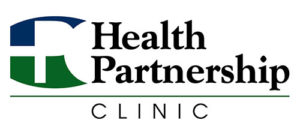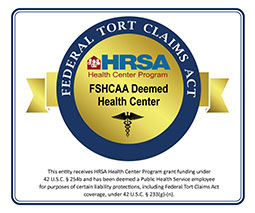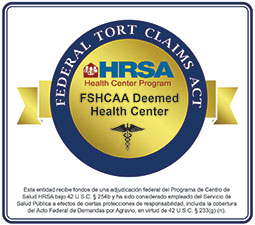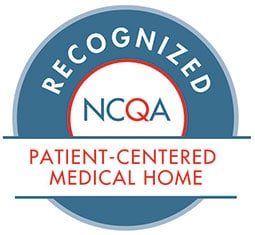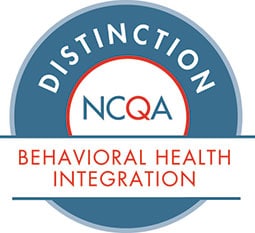National Minority Mental Health Month: Opportunity for Education and Change
Post written by Cecilia Ponce, LSCSW, Behavioral Health Clinician
July has been designated as National Minority Mental Health Month.

In May of 2008, The United States House of Representatives announced July as Bebe Moore Campbell National Minority Mental Health Awareness Month. Bebe Moore Campbell identified as African American and was a well-known author, advocate and the co-founder of National Alliance on Mental Illness (NAMI) Urban Los Angeles. Campbell passed in 2006, but her tireless work lives on. The goal of this designation is to improve access to mental health treatment, to help destigmatize mental health and to promote public awareness.
Upon first glance, one might question the difference between mental health diagnosing and treatment of persons identified as minorities. As a mental health professional or health professional, we are taught to assess, collaborate and treat individuals with a culturally effective approach. We are also taught that in the presence of culture there is no diagnosis and also provided with an explanation of “cultural concepts of distress” in the Diagnostic and Statistical Manual of Mental Disorders.
According to the last Census (2017) about 40 percent of the U.S. population identifies as a minority, and minorities account for the majority of the population in four states. The U.S. Census names African American, American Indian or Alaskan Native, Asian, Native Hawaiian or Pacific Islander, Hispanic or Latino and two or more races as minorities. The Substance Abuse and Mental Health Service Administration (SAMHSA) and the Agency for Healthcare Research and Quality (AHRQ), states racial and ethnic minority groups are less likely to have access to mental health services and more likely to utilize emergency departments in hospitals; and as a whole appear to have poorer mental health outcomes.
Breaking Down Barriers
As a Social Worker and Mental Health Professional (BHC), it is my professional and personal mission to help break down barriers to care and help empower clients. This aligns with Health Partnership Clinic’s mission “we are dedicated to improving the health of the communities we serve through the provision of high quality, affordable, accessible and culturally appropriate care to all individuals regardless of ability to pay”. We also offer integrated visits and promote wellness with a preventative approach thus decreasing the barriers of cost, wait times, referral process and stigma. We are patient centered, and we treat the whole person.
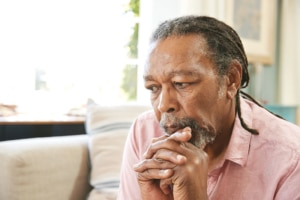 As I write this blog, we as a nation are experiencing political and systemic protests, a pandemic and economic instability. Given this platform, it would be irresponsible to leave out the impact that discrimination and racism has on minority mental health. As a Latinx individual, I have the privilege of being bicultural, bilingual and other. This does not imply that I am impervious to direct discrimination, microaggressions and institutional barriers that many of our patients face.
As I write this blog, we as a nation are experiencing political and systemic protests, a pandemic and economic instability. Given this platform, it would be irresponsible to leave out the impact that discrimination and racism has on minority mental health. As a Latinx individual, I have the privilege of being bicultural, bilingual and other. This does not imply that I am impervious to direct discrimination, microaggressions and institutional barriers that many of our patients face.
#HPCSTRONG
Our campaign of #HPCSTRONG fits best to describe how a diverse group of medical and mental health professionals can help break down barriers and empower individuals one visit at a time, one community outreach program at a time, one educational support presentation at a time, and one advocacy event at a time. We can accept that mental illness does not discriminate and those of us who identify as minorities have different experiences and ways of coping.
“Once my loved ones accepted the diagnosis, healing began for the entire family, but it took too long. It took years. Can’t we, as a nation, begin to speed up that process? We need a national campaign to destigmatize mental illness, especially one targeted toward African Americans…It’s not shameful to have a mental illness. Get treatment. Recovery is possible (Campbell, 2005).”
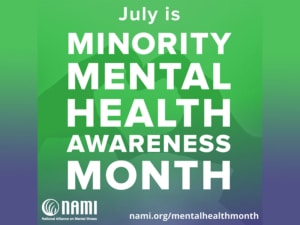 This July, let us honor Campbell and other advocates who have come before us to incite change.
This July, let us honor Campbell and other advocates who have come before us to incite change.
Below is a list of ways that you can help ignite change:
- Presentation: Consider a dialogue or communication with your community about mental health.
- Strive to be a culturally competent provider/professional.
- Advocate: call, write, dialogue, and/or present to your legislators both locally and nationally.
- Share your story or experience.
- Join a virtual or in-person walk (NAMI, PRO-ACT Recovery, Out of the Darkness, Speak Up).
- Consider donating to a local agency or campaign.
- If you are a health or mental health professional continue your education: https://thinkculturalhealth.hhs.gov/education/behavioral-health.
